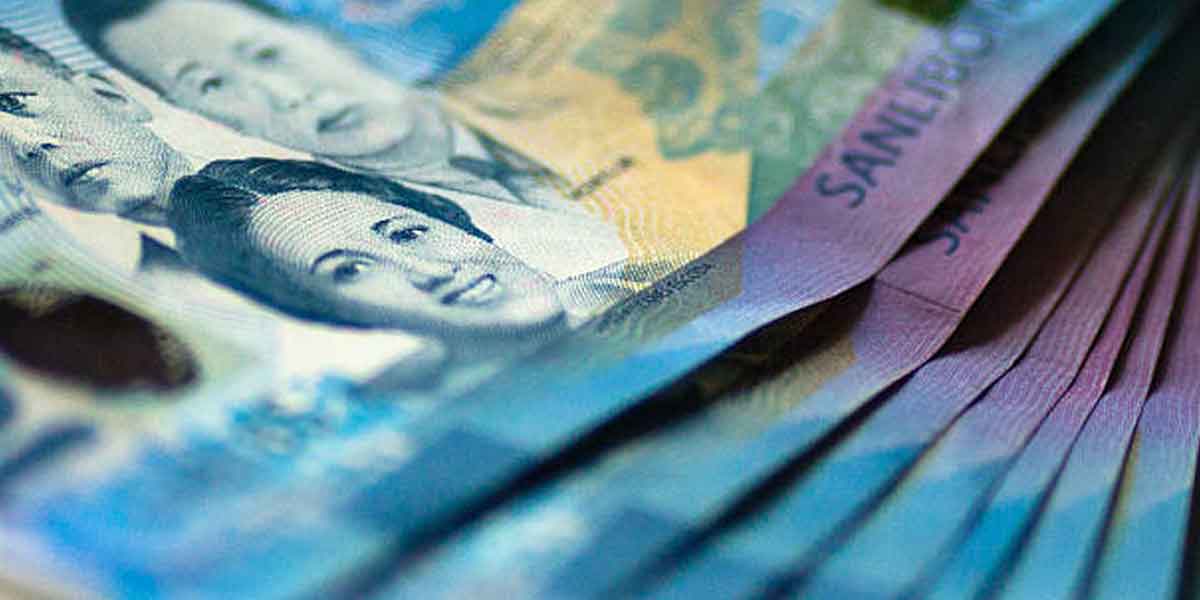By Francis Allan L. Angelo
The Department of Finance (DOF) of the Philippines engaged in high-level discussions at the World Bank-International Monetary Fund (WB-IMF) Spring Meetings, pushing forward the country’s innovative strategies for climate finance solutions.
The talks, held on the sidelines of the official meetings, underscored the Philippines’ role in advocating global climate finance changes, according to a DOF press statement.
On April 16, 2024, the DOF, together with the Bangko Sentral ng Pilipinas (BSP), participated in the inaugural meeting of the Vulnerable 20 (V20) Group of Finance Ministers’ Governors Working Group.
The group was established to enhance collaboration with V20 and G21 central banks and mobilize resources from the International Monetary Fund (IMF).
Simultaneously, the DOF contributed to the High-Level Event on Addressing Polycrisis: Capital Mobilization for the V20 Climate Prosperity Agenda.
The session aimed to fortify Country Platforms that comprise domestic policymakers, international investors, and experts to foster investment projects pivotal for sustainable development.
Undersecretary Maria Luwalhati Dorotan Tiuseco, representing Finance Secretary Ralph G. Recto, highlighted the Philippines’ integrated approach to financing climate action.
“We are already implementing our Interagency Task Force on Sustainable Finance to coordinate and enhance our efforts to meet our Nationally Determined Contributions,” Tiuseco said during the 12th V20 Ministerial Dialogue.
The discussions also focused on the Philippines’ strategies to access international funds like the Green Climate Fund (GCF) and the Global Environment Facility (GEF) to support the country’s National Adaptation Plan and the People’s Survival Fund.
The GCF is a global fund that supports developing countries in responding to the challenges of climate change, while the GEF is dedicated to confronting biodiversity loss, climate change, pollution, and supporting land and ocean health.
These sources can help fund the country’s National Adaptation Plan (NAP) and scale up financing for its local People’s Survival Fund (PSF), the country’s national adaptation fund chaired by the Secretary of Finance and managed by DOF as lead Secretariat.
In addition, the DOF spotlighted the Strategic Investment Priority Plan (SIPP), aimed at promoting investments that support climate mitigation and adaptation efforts.
The SIPP identifies priority industries, projects, and activities that can be granted fiscal incentives. This includes projects geared towards climate adaptation and mitigation.
The newly enacted Public-Private Partnership (PPP) Code is also expected to propel sustainable and climate-responsive projects across the country.
Undersecretary Tiuseco also announced that the Philippines, with support of the V20,will be developing its Philippine Climate Prosperity Plan this year to support priority adaptation and mitigation sectors, including power system and grid modernization.
On the following day, April 17, the DOF attended the 11th Ministerial Meeting of the Coalition of Finance Ministers for Climate Action, delving into the financial aspects of Nationally Determined Contributions (NDCs) and discussing coordination with environmental ministries. They also tackled harmful financial incentives and appropriate pricing mechanisms; and mobilizing global bond markets for just transition.
On April 18, 2024, the Philippines made a significant plea at a World Bank-hosted ministerial breakfast titled “Getting It Done: Driving Finance Solutions for Development and Climate.”
Tiuseco emphasized the need for robust international support as the Philippines bids to host the Loss and Damage Fund (LDF) Board.
During the intervention, the Department of Finance (DOF) outlined a sweeping investment plan requiring around USD 72 billion to meet the Philippines’ Nationally Determined Contribution (NDC) to climate action.
The investments are crucial for upgrading the nation’s transmission systems and enhancing financial structures to boost renewable energy and energy efficiency initiatives.
The country has developed the National Adaptation Plan (NAP) for 2023-2050 and an NDC Implementation Plan (NDC IP), aiming to integrate long-term climate adaptation strategies and enhance resilience across all societal sectors.
Furthermore, the Philippines plans to expand market-based climate finance options, including sustainability-linked, green, and blue bonds, supported by the newly released Sustainable Finance Taxonomy Guidelines (SFTG).
The ministerial event, organized by The Rockefeller Foundation and the Open Society Foundation, saw the participation of global leaders including Barbados Prime Minister Mottley, UK Minister of State Andrew Mitchell, and COP28 Director-General Ambassador Majid Al Suwaidi. High-level discussions focused on leveraging financial tools to achieve global climate goals, highlighting the critical role of finance ministers in fostering economic and environmental sustainability.
Undersecretary Tiuseco also represented the Philippines at the Global Shield Board meeting, where new beneficiary countries were welcomed.
The Global Shield Against Climate Risk is designed to advance pre-arranged protection and disaster response for vulnerable nations, complementing the LDF’s goals.
On the following day, April 19, the DOF took part in a working group on carbon finance, engaging with the Voluntary Carbon Markets Integrity Initiatives (VCMI) to explore cooperation between V20 member countries and enhance carbon market frameworks.
Finally, DOF’s Director John Narag represented the Philippines during an event entitled, From the National to the International: Policymaking for Climate Prosperity and Global Financial Architecture Reform at the Fairmont Hotel.
The high-level event tackled policymaking for climate prosperity and global financial architecture reform featuring representatives from the V20 Group, US government, and prominent international financial institutions.
The event was co-hosted by the Rockefeller Foundation, the V20, the Boston University Global Development Policy Center, the Centre for Sustainable Finance at SOAS, and the University of London.
From April 21 to 26, the DOF’s John Narag and Anna Mercali participated in the international residency program of the V20 Climate Prosperity Fellowship hosted by the V20 Secretariat, Boston University, and SOAS UK London in Boston, Massachusetts.
The DOF-CFPG provides advisory services and technical support to the Secretary of Finance concerning the Department’s mandates on climate finance, disaster risk financing and insurance, and sustainable finance covering financing, initiatives, and partnerships in the national and global setting.




















